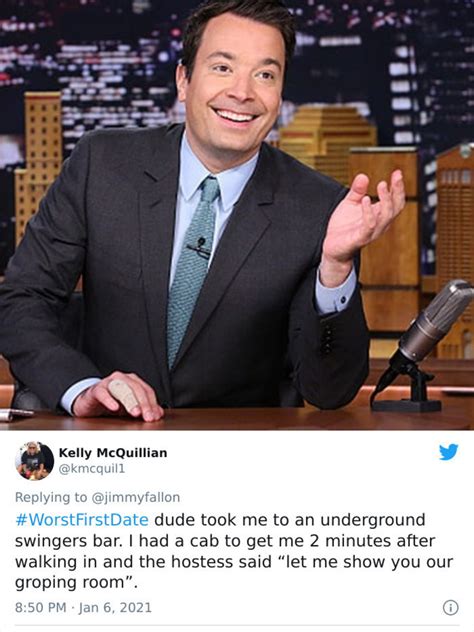
Dating can be a minefield of awkward encounters, but sometimes, the red flags are so glaring they’re practically waving. Online, individuals are sharing the precise moments they realized their date was, to put it bluntly, not the sharpest tool in the shed. From geographical gaffes to historical howlers and culinary catastrophes, the anecdotes reveal a spectrum of dating disasters rooted in sheer ignorance or staggering lack of common sense.
The confessions, shared across social media platforms, highlight the subjective, and often humorous, nature of romantic compatibility, or in these cases, the distinct lack thereof. While some instances involve simple misunderstandings, others expose deeply ingrained biases or astonishing gaps in general knowledge. One user recounted a date who believed Australia was a city, not a continent. Another recalled a conversation where their date confidently asserted that World War II happened in the 1800s. Yet another revealed their date’s conviction that ketchup was a suitable topping for every dish, including sushi.
These stories, while amusing, also offer a glimpse into the broader challenges of modern dating, where curated online profiles often mask underlying incompatibilities that only become apparent during face-to-face interactions. The internet serves as a repository for these shared experiences, offering both entertainment and a cautionary reminder to approach dating with a healthy dose of skepticism and a keen eye for potential deal-breakers. “It’s amazing how quickly someone can go from charming to completely off-putting when they reveal a fundamental misunderstanding of the world,” commented one user.
The trend of sharing dating disaster stories has resonated widely, reflecting a collective experience of navigating the often-perplexing world of romance. From mispronounced words to baffling beliefs, these moments of realization serve as both comedic relief and a reminder that finding a compatible partner requires more than just physical attraction or shared interests. It requires a certain level of intellectual alignment and a basic understanding of the world around us.
Specific Examples and Anecdotes
The shared stories encompass a wide range of faux pas, ranging from innocent ignorance to outright absurdity. Several anecdotes revolve around geographical missteps. One person described a date who was convinced that Europe was a single country, leading to a swift and decisive end to the evening. Another recounted a similar experience where their date confused continents, placing countries in entirely incorrect locations. “He argued with me for a solid 10 minutes that Canada was in South America,” one user wrote, “I knew right then it wasn’t going to work.”
Historical inaccuracies also proved to be a common theme. One individual shared the story of a date who believed the American Civil War was fought over the right to own cars. Another revealed their date’s conviction that the moon landing was a hoax perpetrated by the government. “She insisted that Stanley Kubrick directed the moon landing footage,” another user recounted, “I didn’t even know how to respond to that level of conspiracy theory.”
Culinary catastrophes further highlighted the potential for dating disasters. One person described a date who insisted on putting ketchup on everything, including sushi and fine steak. Another recounted a situation where their date ordered a well-done steak with ketchup and then proceeded to complain that it was dry. “He sent it back and asked for more ketchup,” the user stated, “I just couldn’t believe what I was seeing.” The examples extend to even simpler food-related issues, such as the inability to properly use chopsticks or a complete lack of understanding of basic cooking techniques.
Beyond factual errors, the stories often reveal deeper issues related to critical thinking and general awareness. One individual shared a story of a date who was vehemently opposed to vaccinations, citing discredited conspiracy theories as evidence. Another recounted a conversation where their date expressed deeply prejudiced views about different ethnic groups. “It wasn’t just ignorance,” one person wrote, “it was a complete lack of empathy and understanding.”
The Psychology of Dating Disasters
The prevalence of these dating disaster stories raises questions about the psychology of attraction and compatibility. While physical attraction and shared interests often play a significant role in initial attraction, long-term relationships require a deeper level of intellectual and emotional connection. These stories highlight the importance of shared values, critical thinking skills, and a basic understanding of the world.
According to psychologists, cognitive compatibility is a crucial factor in relationship success. Cognitive compatibility refers to the degree to which two individuals share similar ways of thinking, processing information, and making decisions. When two people are cognitively compatible, they are more likely to understand each other’s perspectives, communicate effectively, and resolve conflicts constructively.
In contrast, cognitive dissonance, or the discomfort experienced when holding conflicting beliefs or values, can lead to tension and conflict in a relationship. The dating disaster stories often illustrate instances of significant cognitive dissonance, where fundamental differences in worldview and understanding of the world create an insurmountable barrier to connection.
Furthermore, these stories also highlight the importance of emotional intelligence. Emotional intelligence refers to the ability to understand and manage one’s own emotions, as well as the emotions of others. Individuals with high emotional intelligence are better able to empathize with their partners, communicate effectively, and navigate challenging situations. In contrast, individuals with low emotional intelligence may struggle to understand their partner’s perspective, leading to misunderstandings and conflict.
The Role of Social Media
Social media platforms have played a significant role in the proliferation of dating disaster stories. These platforms provide a space for individuals to share their experiences, connect with others who have had similar encounters, and find validation and support. The anonymity offered by some platforms can also encourage individuals to share more candid and personal stories than they might otherwise be comfortable sharing.
The sharing of these stories can serve several purposes. First, it can provide a sense of catharsis for the individuals involved. By sharing their experiences, they can process their emotions and find closure. Second, it can provide entertainment and amusement for others. The absurdity of some of the dating disaster stories can be both funny and relatable. Third, it can serve as a cautionary tale for others. By reading about the experiences of others, individuals can learn to identify red flags and avoid similar situations.
However, it is also important to acknowledge the potential downsides of sharing dating disaster stories on social media. These stories can sometimes be exaggerated or embellished for comedic effect. They can also perpetuate negative stereotypes and contribute to a culture of cynicism about dating. It is important to approach these stories with a critical eye and to remember that they represent only a small fraction of the dating experiences that people have.
Navigating the Modern Dating Landscape
The modern dating landscape is characterized by a wide range of challenges, including the prevalence of online dating, the pressure to present a perfect image, and the difficulty of finding genuine connection. The dating disaster stories highlight some of these challenges and offer insights into how to navigate them.
One key takeaway is the importance of being authentic and honest in the dating process. While it is natural to want to present oneself in the best possible light, it is important to avoid creating a false or misleading impression. Eventually, the truth will come out, and it is better to be upfront about one’s flaws and quirks from the beginning.
Another important takeaway is the importance of being open-minded and tolerant. No one is perfect, and everyone has their own unique set of strengths and weaknesses. It is important to be willing to accept others for who they are, rather than trying to change them. Of course, there are certain deal-breakers that should not be ignored, such as dishonesty, disrespect, or abuse. But it is important to be willing to overlook minor imperfections and to focus on the qualities that make a person special.
Finally, it is important to remember that dating is a process of trial and error. Not every date will be a success, and there will inevitably be some awkward or disappointing encounters along the way. The key is to learn from these experiences, to maintain a positive attitude, and to never give up hope of finding a compatible partner. As one user aptly stated, “Dating is like sifting through a lot of dirt to find a few precious gems.”
The shared experiences serve as a reminder that while the search for love can be challenging, the ability to laugh at oneself and learn from missteps is crucial. They underscore the importance of setting clear boundaries, trusting one’s instincts, and prioritizing compatibility over superficial attraction. The collective wisdom gleaned from these dating disasters can, ironically, help others navigate the dating world with more awareness and a lighter heart.
In-Depth Analysis of Common “Moron” Indicators
Delving deeper into the shared anecdotes reveals some recurring themes that appear to be major red flags for daters. These indicators can be broadly categorized into factual inaccuracies, critical thinking deficiencies, and social/emotional ineptitude.
-
Factual Inaccuracies: While a minor slip-up might be forgivable, persistent and blatant disregard for basic facts raises concerns about a person’s general knowledge and intellectual curiosity. Confusing continents, misremembering historical events, or demonstrating a lack of understanding of scientific principles can all be warning signs. It suggests either a lack of education or a disinterest in learning and expanding one’s horizons. The issue isn’t necessarily about knowing everything, but about a willingness to acknowledge gaps in knowledge and a curiosity to learn. The stories highlighted aren’t about forgetting a date in history but rather fundamentally misunderstanding core concepts.
-
Critical Thinking Deficiencies: Beyond factual knowledge, the ability to think critically is essential for navigating complex situations and forming informed opinions. Dates who uncritically accept conspiracy theories, express illogical arguments, or fail to recognize inconsistencies in their own beliefs raise concerns about their capacity for rational thought. Blindly accepting information without questioning its validity is a major red flag. This extends to decision-making processes and problem-solving skills. Someone who consistently jumps to conclusions without considering alternative perspectives may prove difficult to reason with in a relationship.
-
Social/Emotional Ineptitude: While intelligence is valued, emotional intelligence is arguably even more important for building healthy relationships. Dates who demonstrate a lack of empathy, struggle to understand social cues, or express insensitive or offensive opinions are likely to create conflict and tension. This includes being unaware of social norms, displaying poor manners, or making inappropriate comments. Furthermore, difficulty understanding or respecting boundaries is a serious red flag, indicating a potential lack of consideration for the other person’s feelings and needs. The ability to engage in respectful dialogue, even when disagreeing, is a cornerstone of a healthy relationship.
-
Communication Style: Communication is the bedrock of any relationship, and a flawed communication style can be a major indicator of future problems. Dates who interrupt frequently, dominate conversations, or fail to listen actively may demonstrate a lack of respect for their partner’s perspective. Similarly, those who struggle to express themselves clearly or resort to personal attacks during disagreements are likely to create misunderstandings and escalate conflicts. Constructive communication, characterized by active listening, empathy, and clear expression, is vital for resolving issues and fostering intimacy.
-
Lack of Self-Awareness: Individuals who lack self-awareness often struggle to recognize their own flaws and how their behavior impacts others. They may be prone to defensiveness, blame-shifting, or denial when confronted with criticism. This lack of self-reflection can make it difficult to resolve conflicts and build a healthy relationship, as they are unable to acknowledge their own role in the problem. Self-awareness involves understanding one’s own emotions, values, and motivations, as well as being able to objectively assess one’s strengths and weaknesses.
-
Resistance to New Ideas: While not everyone needs to be on the cutting edge of every trend, a complete resistance to new ideas or perspectives can indicate a closed-mindedness that hinders growth and understanding. Dates who are unwilling to consider alternative viewpoints or engage in intellectual discussions may be difficult to connect with on a deeper level. A willingness to learn and adapt is essential for navigating the ever-changing world and building a fulfilling relationship.
These recurring indicators suggest that while attraction and initial chemistry are important, long-term compatibility depends on a deeper alignment of values, intellect, and emotional intelligence. Recognizing these red flags early on can save individuals from investing time and energy in relationships that are ultimately doomed to fail.
The Broader Implications Beyond the “Moron” Label
While the article and shared anecdotes focus on moments of apparent “moron-ism,” it is crucial to recognize the broader implications and potential biases embedded within these judgments. Labeling someone a “moron” is a harsh and often unfair assessment based on limited information and subjective perceptions.
First, cultural differences can play a significant role in shaping one’s understanding of the world and social norms. What might be considered ignorance or a lack of common sense in one culture could be perfectly acceptable or even expected in another. Judging someone based on cultural differences can lead to misunderstandings and perpetuate stereotypes.
Second, educational backgrounds and access to information vary widely. Individuals from disadvantaged backgrounds may not have had the same opportunities to acquire knowledge and develop critical thinking skills as those from more privileged backgrounds. It is important to consider these factors when assessing someone’s intellectual abilities.
Third, anxiety and nervousness can significantly impair cognitive function. Dates who are feeling anxious or stressed may make mistakes, forget facts, or struggle to articulate their thoughts clearly. It is important to be patient and understanding, and to avoid making snap judgments based on a single encounter.
Fourth, neurodiversity encompasses a wide range of cognitive differences, including autism, ADHD, and dyslexia. Individuals with neurodevelopmental conditions may process information differently, struggle with social cues, or have difficulty expressing themselves in conventional ways. Labeling them as “morons” based on these differences is not only inaccurate but also deeply insensitive.
Finally, the “moron” label often reflects a lack of empathy and a failure to appreciate the complexity of human experience. Everyone has their own unique strengths and weaknesses, and it is important to approach others with compassion and understanding, rather than judgment and ridicule. The shared anecdotes, while often humorous, should also serve as a reminder to be mindful of the potential biases and limitations of our own perceptions.
The dating world can be challenging and full of unexpected encounters. While it’s tempting to quickly categorize someone based on initial impressions, it’s important to remember that first impressions can be deceiving. Building meaningful connections requires patience, understanding, and a willingness to see beyond superficial flaws. The goal should be to find someone who complements your strengths and challenges your weaknesses, not to seek out a perfect clone.
FAQ Section
1. What constitutes a “dating disaster” as referenced in the article?
A dating disaster, in this context, refers to an encounter where one person realizes their date possesses a significant lack of knowledge, displays flawed critical thinking, or demonstrates social/emotional ineptitude, leading to a perceived incompatibility and a negative dating experience.
2. Are the shared anecdotes scientifically validated, or are they simply personal opinions?
The anecdotes are personal opinions and experiences shared by individuals online. While they may reflect real-life situations, they are not scientifically validated and should be viewed as subjective accounts rather than objective truths. The purpose of the article is to discuss common dating grievances and observations and not to make any scientific claims.
3. Does the article promote the act of labeling people as “morons”?
No, the article does not promote labeling people as “morons.” It reports on the trend of individuals sharing moments when they perceived their dates to be lacking in intelligence or common sense. It includes a section discussing the broader implications of such judgments, highlighting the potential for bias and the importance of empathy and understanding.
4. What role does social media play in shaping these dating disaster narratives?
Social media provides a platform for individuals to share their dating experiences, connect with others who have had similar encounters, and find validation and support. It can also amplify these narratives, creating a sense of collective experience and shaping perceptions of the modern dating landscape. However, it’s also important to note that these stories can be exaggerated or embellished for comedic effect.
5. What are some key takeaways for navigating the modern dating landscape based on the shared anecdotes?
Key takeaways include: prioritizing intellectual and emotional compatibility, being authentic and honest in the dating process, being open-minded and tolerant of differences, setting clear boundaries, trusting one’s instincts, and remembering that dating is a process of trial and error. Furthermore, it is important to cultivate self-awareness, develop strong communication skills, and approach dating with a sense of humor and perspective.









